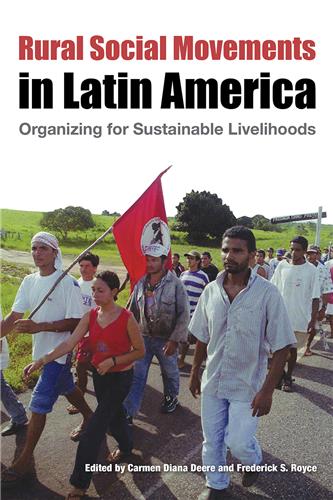Migrants and Political Change in Latin America
Luis F. Jiménez
Hardcover: $79.95
“Jiménez uses a sophisticated mixed-methods approach to grapple with the question of how much migrants change the politics of their home countries. The combination of quantitative analysis and fieldwork in three countries makes it a worthy contribution to the literature.”—Gregory B. Weeks, author of U.S. and Latin American Relations, 2nd Edition
“Jam-packed with new theoretical insights and original data. Readers will come to better understand when and how, exactly, immigrants influence the politics of their nations of origin.” —Efrén O. Pérez, author of Unspoken Politics: Implicit Attitudes and Political Thinking
This book reveals how migrants shape the politics of their countries of origin, drawing on research from Mexico, Colombia, and Ecuador and their diasporas, the three largest in Latin America. Luis Jiménez discusses the political changes that result when migrants return to their native countries in person and also when they send back new ideas and funds—social and economic “remittances”—through transnational networks.
Using a combination of rich quantitative analysis and eye-opening interviews, Jiménez finds that migrants have influenced areas such as political participation, number of parties, electoral competitiveness, and presidential election results. Interviews with authorities in Mexico reveal that migrants have inspired a demand for increased government accountability. Surveys from Colombia show that neighborhoods that have seen high degrees of migration are more likely to participate in local politics and also vote for a wider range of parties at the national level. In Ecuador, he observes that migration is linked to more competitive local elections as well as less support for representatives whose policies censor the media. Jiménez also draws attention to government services that would not exist without the influence of migrants.
Looking at the demographics of these migrating populations along with the size and density of their social networks, Jiménez identifies the circumstances in which other diasporas—such as those of south Asian and African countries—have the most potential to impact the politics of their homelands.
Luis F. Jiménez is assistant professor of political science at the University of Massachusetts Boston.
- Sample Chapter(s):
- Excerpt
- Table of Contents
There are currently no reviews available












